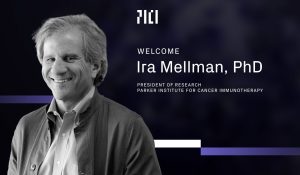Developing Next-Gen Scientific Leaders: The Parker Institute for Cancer Immunotherapy Awards up to $2.9 Million to Eight Early Career Investigators
Since 2016, PICI has provided more than $20 million to 45 emerging researchers to transform their bold questions and big ideas into treatment advancements for patients.
SAN FRANCISCO, CA – Powered by a commitment to accelerating bold, emerging science, the Parker Institute for Cancer Immunotherapy (PICI) continues to invest in the next generation of scientific leaders and their ambitious ideas for curative cancer treatments.
This year, PICI is recognizing its seventh Early Career Researcher Awards class – eight exceptional graduate and postdoctoral researchers from the PICI Network – a consortium of the world’s leading cancer research institutions – who will share up to $2.9 million total in awards to support their research.
Awardees are chosen from a highly competitive field of PICI Network researchers on the basis of innovative research, scientific approach, the significance of the proposed work to advance cancer immunotherapy, and the promise of their research to further the mission of PICI – to accelerate the development of immune therapies and turn all cancers into curable diseases.
“Not only do we invest in today’s preeminent scientists, we also empower the cancer immunotherapy leaders of tomorrow,” said John Connolly, PhD, Chief Scientific Officer at PICI. “These promising scientists and their research will benefit from our support, as will future patients.”
Since PICI’s founding in 2016, the institute has recognized 45 investigators through its Early Career Researcher program, awarding more than $20 million in total funding to advance critical scientific pursuits in immunotherapy aimed at making cancer a curable disease.
Of the eight awardees named this year, three are Parker Bridge Fellows. They are senior postdoctoral investigators working to answer the most critical questions in cancer immunotherapy as they transition into faculty positions following mentorship by PICI’s network of internationally renowned leaders.
The 2023 Parker Bridge Fellows are:
- Jean-Christophe Beltra, PhD, of the University of Pennsylvania (Penn), who is researching combinations of agents that work with checkpoint blockade therapy to achieve durable responses in more patients.
- Zinaida Good, PhD, of Stanford Medicine, whose work at the interface between systems biology and cancer immunotherapy is leading to defining a “therapeutic” CAR T cell in patients with cancer.
- Youjin Lee, PhD, of Gladstone Institutes, who studies the complex interaction between cancer and the immune system within the tumor microenvironment to improve immunotherapy treatment options for patients with malignant carcinomas.
Rounding out this year’s class are five Parker Scholars, scientists who are ready to establish a laboratory or independent program in cancer immunotherapy.
The 2023 Parker Scholars are:
- Matthew Brown, a PhD candidate at Icahn School of Medicine at Mount Sinai, who is focused on understanding antigen-specific T-cell responses and immune evasion in solid tumors, to improve cancer vaccine design.
- Aram Lyu, PhD, of the University of California, San Francisco, who is examining the myeloid landscape in prostate cancer at single-cell resolution, with a goal of understanding the response and resistance to immune checkpoint inhibitors.
- Divij Mathew, PhD, of Penn, who researches how transient inhibition of chronic interferon signals can lead to improved responses to checkpoint blockade therapy.
- Chris McGinnis, PhD, of Stanford, who uses his background in single-cell genomics, immunology and computational biology to understand how tumors reprogram the immune system during metastasis.
- Anna Ralser, MD, PhD, of Gladstone, who is working to understand the tumor microenvironment and how different types of immune cells and other cells in the tissue work together and communicate with each other so they can ultimately team up to fight cancer.
Along with financial support, these scientists will have the opportunity to collaborate with pioneers in the field through PICI’s world-class network of immunotherapy experts and research institutions. Early career researchers also have access to leading-edge technology and other top collaborators to further guide and propel research.
“This award supports some of the most innovative projects from early career researchers as we continue to develop our understanding of the science and help lead it in new and exciting directions,” said Matthew Brown, whose research is aimed at informing the design of next-generation cancer and viral vaccines. “The support is important for maximizing the translational impact of our work for patients.”
Youjin Lee, who is focused on better understanding how cancer and neighboring cells interact within the tumor microenvironment, believes it will pave the way for enhanced immune responses against cancer, benefiting more people.
“Making our immune cells better fighters is key,” she said. “This award gives me the freedom to explore this approach through higher-risk research that otherwise might not be possible.”
To learn more about how to support researchers within the PICI Network, visit parkerici.org/donate.
About the Parker Institute for Cancer Immunotherapy
The Parker Institute for Cancer Immunotherapy (PICI) is radically changing the way cancer research is done. Founded in 2016 through a $250 million gift from Silicon Valley entrepreneur and philanthropist Sean Parker, the San Francisco-based nonprofit is an unprecedented collaboration between the country’s leading immunotherapy researchers and cancer centers, including Dana-Farber Cancer Institute, Stanford Medicine, Gladstone Institutes, the University of California, Los Angeles, the University of California, San Francisco and the University of Pennsylvania. The institute also supports top researchers at other institutions, including City of Hope, Fred Hutchinson Cancer Center, The Tisch Cancer Institute at Mount Sinai, Institute for Systems Biology, Memorial Sloan Kettering Cancer Center, The University of Texas MD Anderson Cancer Center and Washington University School of Medicine in St. Louis. By forging alliances with academic, industry and nonprofit partners, PICI makes big bets on bold research to fulfill its mission: to accelerate the development of breakthrough immune therapies to turn all cancers into curable diseases.


